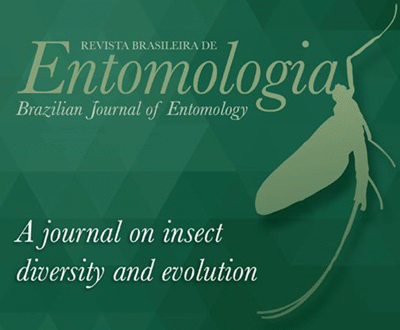The effect of five carbohidrate sources, water and no food (starvation) was evaluated on biological characteristics of T. remus. The treatments were the following: (a) non-fed females, and females fed with (b) distilled water; (c) honey; (d) glucose syrup (Karo®); (e) glucose solution 1M; (f) fructose solution 1M; (g) sucrose solution 1M; (h) glucose+fructose+sucrose 1M; (i) glucose+fructose+sucrose 3M. Spodoptera frugiperda egg masses with ca. 100 eggs (< 24h old) were offered to T. remus females. Parasitism, sex ratio, and longevity were evaluated. In relation to parasitism, females fed on honey and glucose, fructose, and sucrose solutions were similarly more efficient whereas non-fed females and females fed only on water showed low levels of parasitism. Females fed on glucose syrup (Karo®) and glucose+fructose+sucrose 1M and 3M presented significantly lower parasitism than the other treaments. There was no significant difference in the sex ratio of the progeny. The sex ratio was ca. 0.57. On average, females were alive for 5 days when fed on any carbohidrate source, whereas females fed on only water and non fed-females lived only one day. Therefore, honey, glucose, fructose, and sucrose were adequate food sources for T. remus females.
Behavior; biological control; egg parasitoids; food


